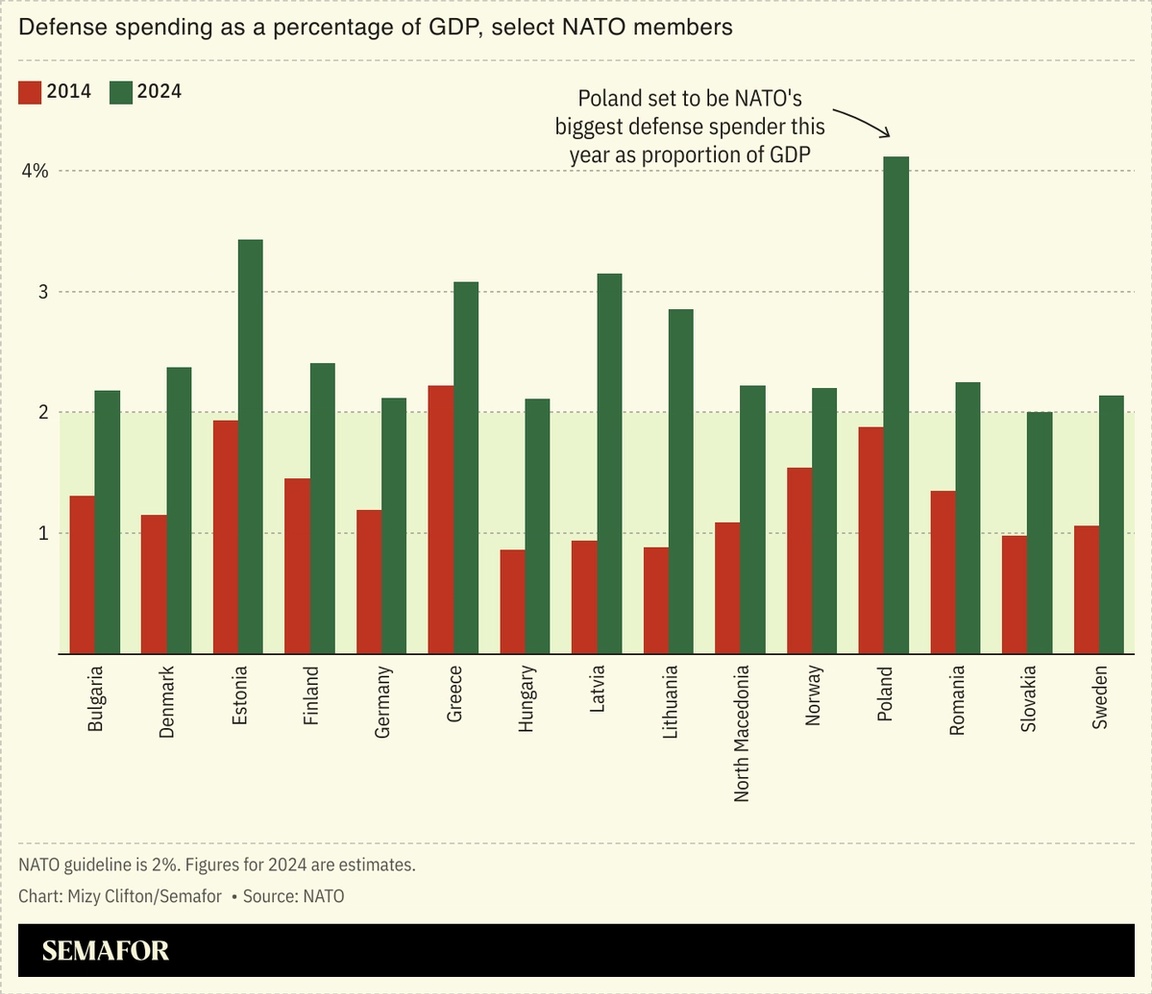 The outgoing NATO secretary-general said the bloc was “much stronger” than a decade ago ahead of a summit next week. In 2014, just three states apart from the US spent 2% of GDP on defense — now, 23 do. That may be partly due to Donald Trump, who at the 2018 summit threatened to take Washington out of the alliance if members did not honor commitments, giving European leaders what the Financial Times described as a “mass bollocking,” or severe dressing-down. NATO officials “despair at the prospect” of a Trump sequel, the FT reported, but it looks increasingly likely, and Politico said that the former US president’s allies are already considering a “radical reorientation” of the organization, putting much more weight on Europe. |